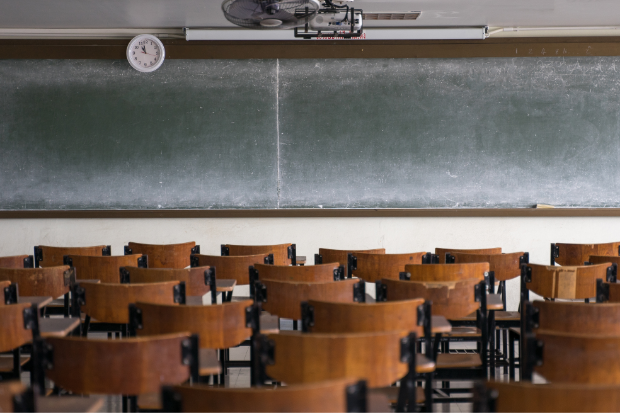Resuming in-person classes: Pediatricians weigh in

INQUIRER.net stock photo
MANILA, Philippines — In-person classes in areas with low risk of COVID-19 infections are possible because children are unlikely to be a major source of transmission, according to a pediatric infectious disease specialist.
However, “there are many things to consider” before reopening schools, said Dr. Maria Liza Antoinette Gonzales, associate dean of faculty and students at the College of Medicine of the University of the Philippines (UP).
“Although we do know that children get mild disease or are not as susceptible to [COVID-19 infection], still, they can get the infection, Gonzales said in her presentation at a UP-organized webinar on Friday titled “Stop COVID Deaths Webinar Series.”
“Before we reopen [schools], we have to consider: Is there ongoing community transmission? Are the teachers vaccinated? Are the schools’ infrastructure prepared, with enough ventilation and enough space to ensure that children have appropriate physical space?” Gonzales said.
‘Predominance of infection’
According to Gonzales, children generally contract a mild form of COVID-19 and only represent 1 to 10 percent of coronavirus cases worldwide.
Article continues after this advertisementBut she also cited a study published on April 21 in the British medical journal Archives of Disease in Childhood, which surveyed pediatric COVID-19 cases involving 9,335 children.
Article continues after this advertisementGonzales said “the findings were consistent with previous reviews that identified the predominance of infection in school-age children with slight male predominance [but] low hospitalization and mortality rates.”
“Comorbidities were reported in approximately 30 percent of cases with immunosuppression[,] and [with] lung disease as [among] the most common comorbidities reported,” she added.
Thus, children could still be at risk for more severe outcomes due to underlying comorbidities associated with severe or critical illness, Gonzales said.
In the Philippines, an online registry of epidemiological data among children—posted on the website of Pediatric Infectious Disease Society of the Philippines—recorded only 972 pediatric COVID-19 cases from July 3, 2020, to May 31, 2021, or a period of almost 11 months.
Of these cases, 25.4 percent were 1 to 5 years old; 18.9 percent were 11 to 15; 16.3 percent were 6 to 10; 15.8 percent were 1 to 11 months old; 12.9 percent were 16 to 18 years old; and 10.7 percent were less than 30 days old.
‘Disruptions’
Dr. Jocelyn Eusebio, president of the Philippine Pediatric Society, agreed with Gonzales that “[W]e always have to start with piloting [in-person classes] initially in certain areas that are of low risk and to ensure that the schools have the provisions for all the safety measures that need to be followed.”
She noted that “about two days ago, the Department of Health convened child health experts together with educators and some other stakeholders and we discussed the reopening of classes.”
Despite the risks of conducting in-person classes, Gonzales said there are many advantages in resuming them since Filipino children had already been suffering mentally from a prolonged period of distance learning.
She stressed the urgency of addressing issues that could negatively impact children’s health and well-being as they continue to be confined to their homes amid the pandemic.
“Disruptions in the normal routine of children are likely to affect them health-wise regardless of whether they are infected with COVID-19,” Gonzales said.
“Now is the time to maintain a trustworthy relationship and open communication with children even as it becomes the duty of the government to provide security to those families who need economic and social support,” Gonzales said.
President Duterte has repeatedly turned down proposals to resume in-person classes, citing the need for the general population to first achieve herd immunity against COVID-19.
Education Undersecretary Diosdado San Antonio said the Department of Education respected the President’s decision “in putting premium to the health and safety of children and Filipinos.”
“We are respectful and we agree that the health and safety of children and our fellow teachers is of better importance than making [in-person] classes even if they are done on a limited scale,” he said.